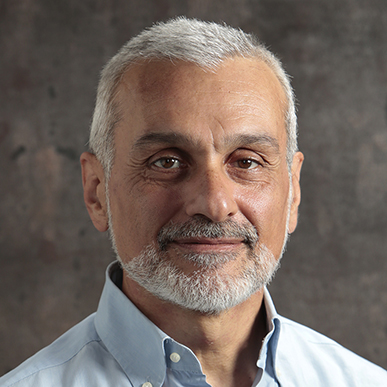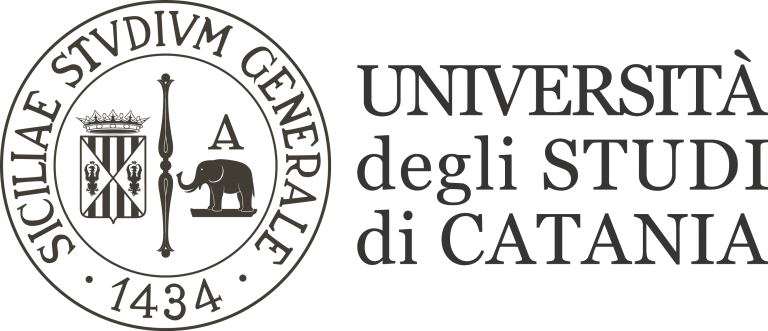
The University of Napoli Federico II (UNA) is the most ancient public university in the world (founded in 1224 by the emperor Federico II to educate state governors) and one of the largest Italian universities, as documented by the number of students (ca 100,000), professors (2,600) and technicians/administrative staff (3,300), spread over 26 departments, covering all areas of research and education. UNA is currently involved in 50 FP7 and Horizon 2020 projects and is the host of 4 ERC grants. The Department of Agricultural Sciences (DIA – a total of 140 assistant, associate and full professors, and 100 technicians) covers all main areas of agricultural and natural resource research. The group responsible for the development of the PRIN-DRASTIC project activities here described covers different areas of expertise: circular bioeconomy, agricultural and resource economics, ecological economics, micro and macroeconomics, microeconometrics. The complementarity of these expertise allows to develop an integrate methods for the socio-economic assessment and evaluation of transition trajectories towards circular economy to be applied in clusters partners in DRASTIC.

Luigi Cembalo – Principal Investigator
Luigi Cembalo (MSc, PhD) is Full Professor in Agricultural and Resource Economics at the University of Naples Federico II (Italy), Department of Agricultural Sciences (DiA). Cembalo is Director of the CRISP (Interdepartmental Research Centre on the “Earth Critical Zone” for supporting the Landscape and Agroenvironment management). His recent research interests are related to the organization of agribusiness, with a specific focus on innovation, sustainability and circular economy. His research interests are also related to microeconometrics, consumer attitudes and behaviors through hypothetical and non-hypothetical methods, working on advanced quantitative consumer choice methodologies (such as choice modeling and experimental economics) and analyzing the resulting data by econometric methods. Prof. Cembalo is member of prestigious national and international scientific association. He has been involved in several research projects as PI and Co-I, such as H2020 projects, FP7 EU projects and PRIN projects financed by the Italian Ministry of University and Research.

With an average enrolment of 40,000 students, the University of Catania has been around for hundreds of years since 1434 and is oldest one in Sicily. The educational system is run and overseen by 17 departments. The Medical School for starters, and by two other educational units respectively located in the city of Ragusa as far as Modern Languages are concerned, and in Syracuse for the School of Architecture. Another special unit is the Scuola Superiore di Catania, a higher education centre based on excellence that was founded in 1998 for the selection and the recognition of the brightest young minds, offering a variety of studies including analysis, research and experimentation. The University of Catania is the recipient of research funding at international and national level and it has a long-term involvement in different research programs, both as a coordinator and/or a partner. The Department of Agriculture, Food and Environment (Di3A) covers the main research areas on agricultural, food, natural and environmental resources. The UCT agricultural economics research group responsible for development of the PRIN-DRASTIC project activities here described covers different areas of expertise: circular economy, micro and macroeconomics, economics of innovation, ecological economics, marine economics.

Mario D’Amico – Associated investigators
Mario D’Amico is Full Professor of University of Catania at the Agriculture, Food and Environment Department. Is a teaching of Marketing and Food industry Management. Board Member (since 2013) of Ph.D. Course in Agricultural, Food and Environmental Science (Di3A). President (2017-2020) of Food Science and Technology MsC (LM 70 – University of Catania). Member Active (2019) of Italian National Agency for the Evaluation of Universities and Research Institutes (ANVUR). Member of Commission to National Scientific Habilitation (ASN) for SC 07/A1 (2018-2021). His recent research interests are related to the organization of Agricultural System, with a specific focus on innovation, sustainability and circular economy. Prof. D’Amico is member of prestigious national and international scientific association. He has been involved in several research projects as PI and Co-I (EU projects, projects financed by the Italian Ministry of University and Research, etc). Specific research areas: Consumption Economics (theory and empirical applications), Food product marketing, technological innovation economics, Economic evaluations in aquaculture-fisheries-marine sectors.

The University Mediterranea of Reggio Calabria (UNIRC acronym) is a relatively young institution being founded in 1968. It combines a commitment to research and teaching in six departments covering different research subject areas: Architecture, Heritage-Architecture Urbanism, Agriculture, Law, Economics and Human Sciences, Civil, Energy, Environmental and Material Engineering, Information Engineering, Infrastructures, and Sustainable Energy. It has about 8,000 students, 404 professors and 175 technicians/administrative staff in total and more than 70 active laboratories to support the activities of scientific and industrial research, experimental development and educational activities. The Department of Agriculture (Agraria) includes teaching and research development in the fields of Agriculture, Forestry Resources, Environment, Resources, Animal husbandry, Agricultural Engineering, and Food, with 70 professors and researchers, 6 degree programs and an International PhD course. The research group involved in the PRIN-DRASTIC project activities covers different areas of expertise belonging to sustainability appraisal, circular bioeconomy, agricultural and resource economics, agro-ecological economics, and agri-food economics. These expertise and their integration within DRASTIC activities are for the purpose to develop an integrate methods for checking sustainability levels of circular economy pathways.

Anna Irene De Luca – Associated investigators
Anna Irene De Luca (MSc, PhD) is Associate Professor in Agricultural Economics and Rural Appraisal at the University Mediterranea of Reggio Calabria (Italy), Department of Agriculture (Agraria). Her current research interests include environmental and natural resources economics with specific topics regarding the circular economy, sustainability assessment of agri-food production processes, life cycle methodologies – life cycle assessment, life cycle costing, social life cycle assessment, life cycle sustainability assessment. Other research interests are also focused on data envelopment analysis, q methodology, decision support systems, multicriteria analysis, participatory methods, rural development, alternative food networks. Prof. De Luca, is Scientific Responsible of WP5 “Socio Economic and Life Cycle Assessment”, within the international project “SUSTAINOLIVE – Novel approaches to promote the SUSTAInability of OLIVE groves in the Mediterranean” (www.sustainolive.eu) funded by PRIMA Foundation (call 2018). She was Scientific Responsible of Task within the project “Sustainability Olive Oil System” S-O-S, funded by Cariplo within “Ager PROJECT” and Scientific Coordinator of the research program FIRB 2012, entitled “Multidisciplinary and Innovative Methodologies for the sustainable management of agricultural systems”, funded by Italian Ministry of University and Research.

The University of Bari Aldo Moro was founded in 1924 and in 2008 was named after one of its most famous students, the statesman Aldo Moro. It is a medium-sized University with approximately 45,000 students, professors (1.375) and technicians/administrative staff (1,400). It is constituted by 23 Departments covering all fields of research from basic to R&D. The University offers various courses for undergraduate, graduate and post-graduate students. The Department of Agricultural and Environmental Science (DiSAAT) consists of 53 professors and covers all main areas of agricultural and natural resource research. The group responsible for the development of the PRIN-DRASTIC project activities here described covers different areas of expertise, with particular relevance in bioeconomy, environmental and resources economics, food economics.

Giacomo Giannoccaro – Associated investigators
Giacomo Giannoccaro (PhD) is Associate Professor in Agricultural and Resource Economics at the University of Bari (Italy), Department of Agricultural and Environmental Science (DiSAAT). He has 12-year-old experiences in the economics of water resources. His research interests are also related to the economics of agricultural biomass as feedstock, with a specific focus on farmer’s behavior towards innovation, sustainability and willingness to change on-farm activities. His research interests relate to environmental analysis, farmer’s attitudes and behaviors through qualitative and quantitative surveying methods (such as focus group, contingent evaluation and choice modeling) and analyzing the resulting data by econometric methods. He exhibits good knowledge of farm modelling trough linear programming models.
Prof. Giannoccaro is member of prestigious national and international scientific association. He has been involved in several research projects as Co-I, such as FP7 EU projects and PRIN projects financed by the Italian Ministry of University and Research.

